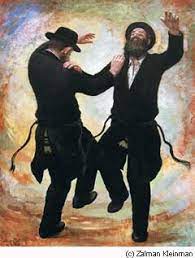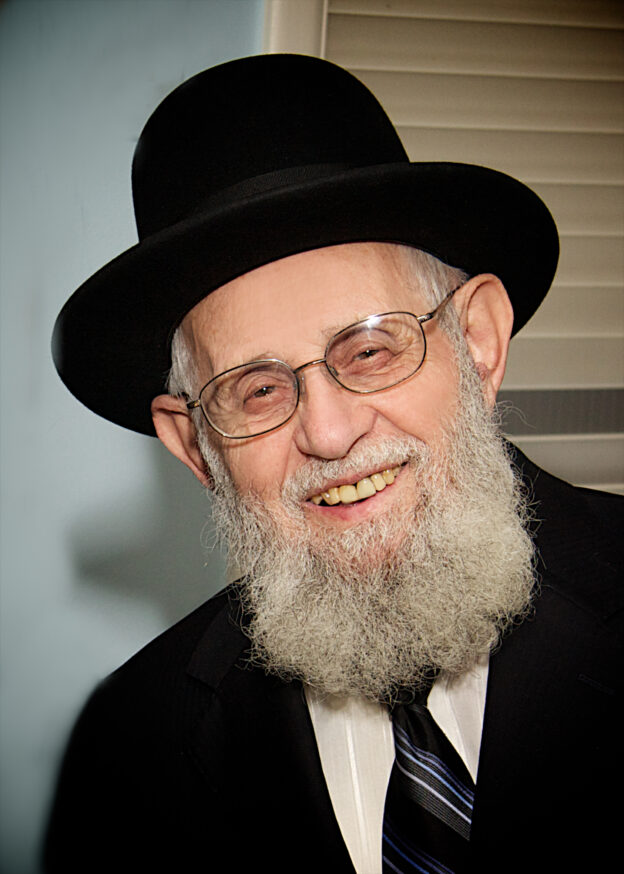Happy the elephant isn’t a person.
That seeming truism was the official ruling of New York’s highest court last week, necessitated by a suit brought by the Nonhuman Rights Project aimed at freeing the pachyderm from prison – the effective description by the group of the Bronx Zoo.
The 5-2 decision by the state Court of Appeals ruled that “while no one disputes that elephants are intelligent beings deserving of proper care and compassion,” a writ of habeas corpus, a fundamental Constitutional right protecting against unlawful imprisonment, is intended to protect the liberty of human beings and does not apply to animals.
The two dissenting judges called Happy’s confinement “inherently unjust and inhumane” and “an affront to a civilized society.”
Judaism considers it forbidden to cause animals unnecessary pain, a prohibition called tzaar baalei chaim, “pain of living creatures.” At the same time, though, the Torah explicitly considers animals to be subject to the needs of humans. While it must be accomplished in as painless a way as possible, utilizing animals for work and even killing them for food or leather are fully sanctioned by the Jewish religious tradition.
Whether being confined to a zoo for the edification and admiration of humans constitutes “undue pain” is an open question. But my guess is that, assuming the confined animals are treated well, which generally is the case in modern zoos, there would be no problem in the eyes of Jewish law with keeping Happy in the Bronx. Presumably Happy is happy.
So the New York court, while it has no obligation to mirror Judaism’s take on anything, has essentially adopted the Jewish view of animals.
Reading of the case brought back a memory. Over my many years serving as spokesman for a national Orthodox Jewish group, Agudath Israel of America, I once received a call from the producer of a network television news program. I was naturally honored and straightened my tie before picking up the phone.
Dropping my voice a couple octaves to project the requisite gravitas, I asked how I might be of help.
I imagined the caller would want the Jewish take on some pressing issue of the day, and was quickly and properly deflated by her question:
“Rabbi, what we’d like to get your take on is the question of whether pets go to heaven.”
“Pardon?” I objected. She repeated herself, and I responded that I really didn’t think I wanted to participate in the planned program.
She persisted, though, and, eventually, having been given a day to think it over, I consented. What I came to realize was that if the issue was really, as the producer claimed, so important to so many, there must be some reason. And then I realized the reason.
Many of the most fundamental philosophical and moral issues of our time – indeed of any time – touch upon the special distinction of humanness. That is why proponents of abortion on demand, which they choose to call “choice,” choose as well to call an unborn child a “pregnancy,” or, at most, a “fetus.” Dehumanizing (used here in its most simple sense) a baby makes it easier to advocate for terminating him or her.
Ethicist Peter Singer has gone a significant step further, making the case for the killing of already-born babies who are severely disabled. He has written, pointedly, that infants are “neither rational nor self-conscious” and so “the principles that govern the wrongness of killing nonhuman animals… must apply here, too.” Or, as he more bluntly puts it: “The life of a newborn is of less value than the life of a pig, a dog or a chimpanzee.” Professor Singer advocates as well the killing of the severely disabled and unconscious elderly.
In that mindset, I pondered, why not be accepting of intimate relations, beyond owner/pet comradeship? Wouldn’t objections to marital bonds between humans and “other animals” be a form of “speciesism”?
Indeed, years ago, a man testified before a Maine legislative committee that proponents of a ban on animal sexual abuse are “trying to force morality on a minority,” and asked a judge to allow his “significant other” – of the canine persuasion – to sit by his side during a court case. The petitioner had been told that he needed special permission, he said, because, “my wife is not human.”
As it happens, Professor Singer is supportive of jettisoning morality here too. The only conceivable reason for considering human-animal intimate relations to be unworthy of societal sanction, he cogently observes, is the belief that human beings are inherently superior. That, indeed, is the position of Judaism, and the professor rejects it summarily. “We are,” he maintains, “animals.”
And so what I came to realize is that much indeed of import to the contemporary world in the end revolves around the difference between animals and humans. It is a difference that not only keeps pets from meriting heaven, because they lack true free will and the divine mandate to utilize it, but also charges us humans to act as something above our physical, animal selves, including according special respect to other humans, including those who are very new or very old.
And so, that was the point I tried to make when the producer and her entourage eventually shlepped their camera equipment to my office to film the segment.
Some of my comments survived the editing process. “Heaven,” I said at one point, “is something one earns, one doesn’t just ‘go to’ it.”
“Animals tend to bond with their caregivers,” I added, “and that’s the way it should be. But that doesn’t erase the distinction between the animal and their caregiver.” And then, tipping my hat about how old I am, I said, “Timmy can go to heaven, but Lassie can’t.”
I hope viewers of the program were spurred to think about the qualitative difference between humans and animals, and the idea that humans can, by their choices, earn eternal reward. Because it is a fundamental – in fact, the most fundamental – fact of life.
And these days, more trenchant than ever.
(c) 2022 Rabbi Avi Shafran









